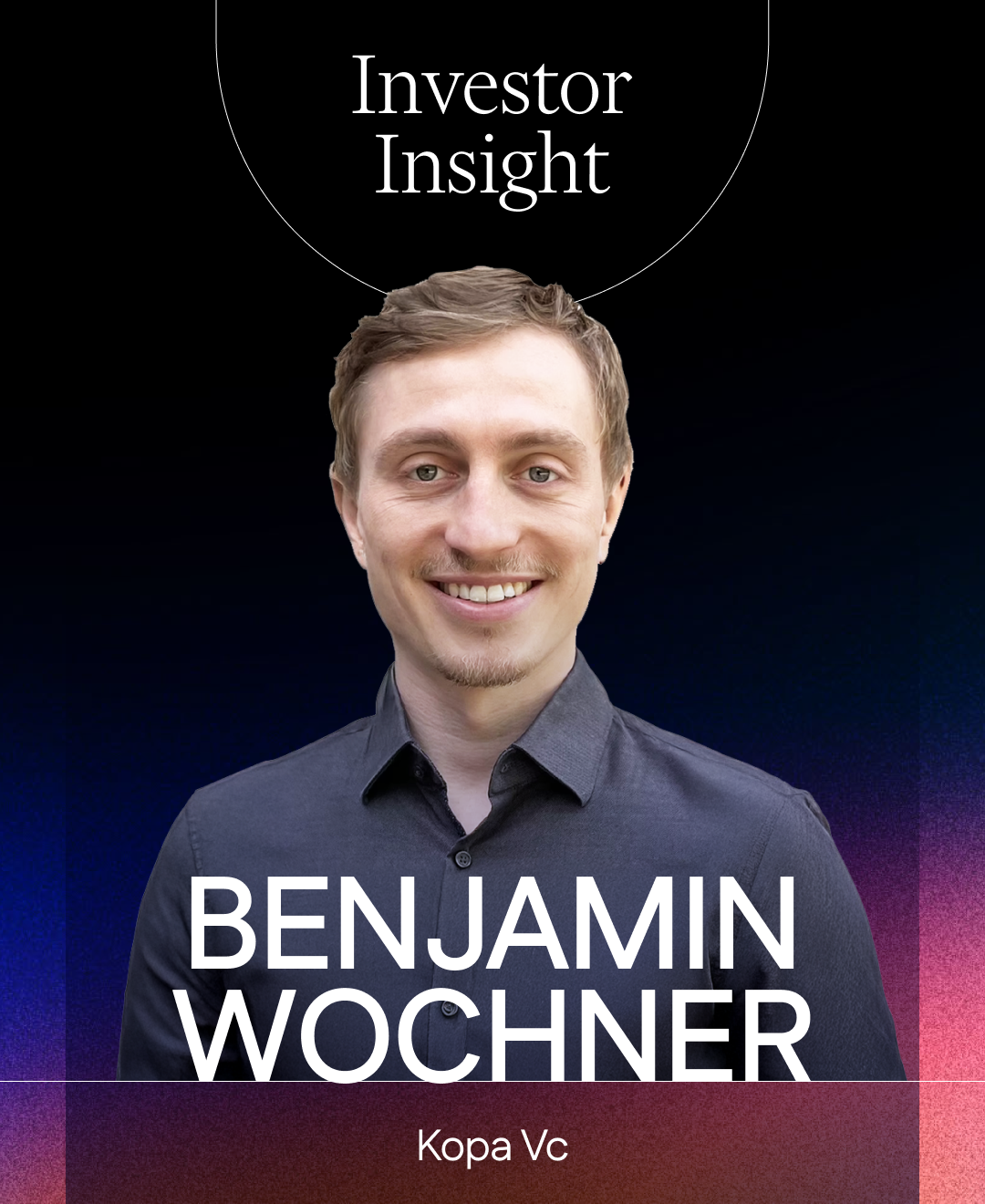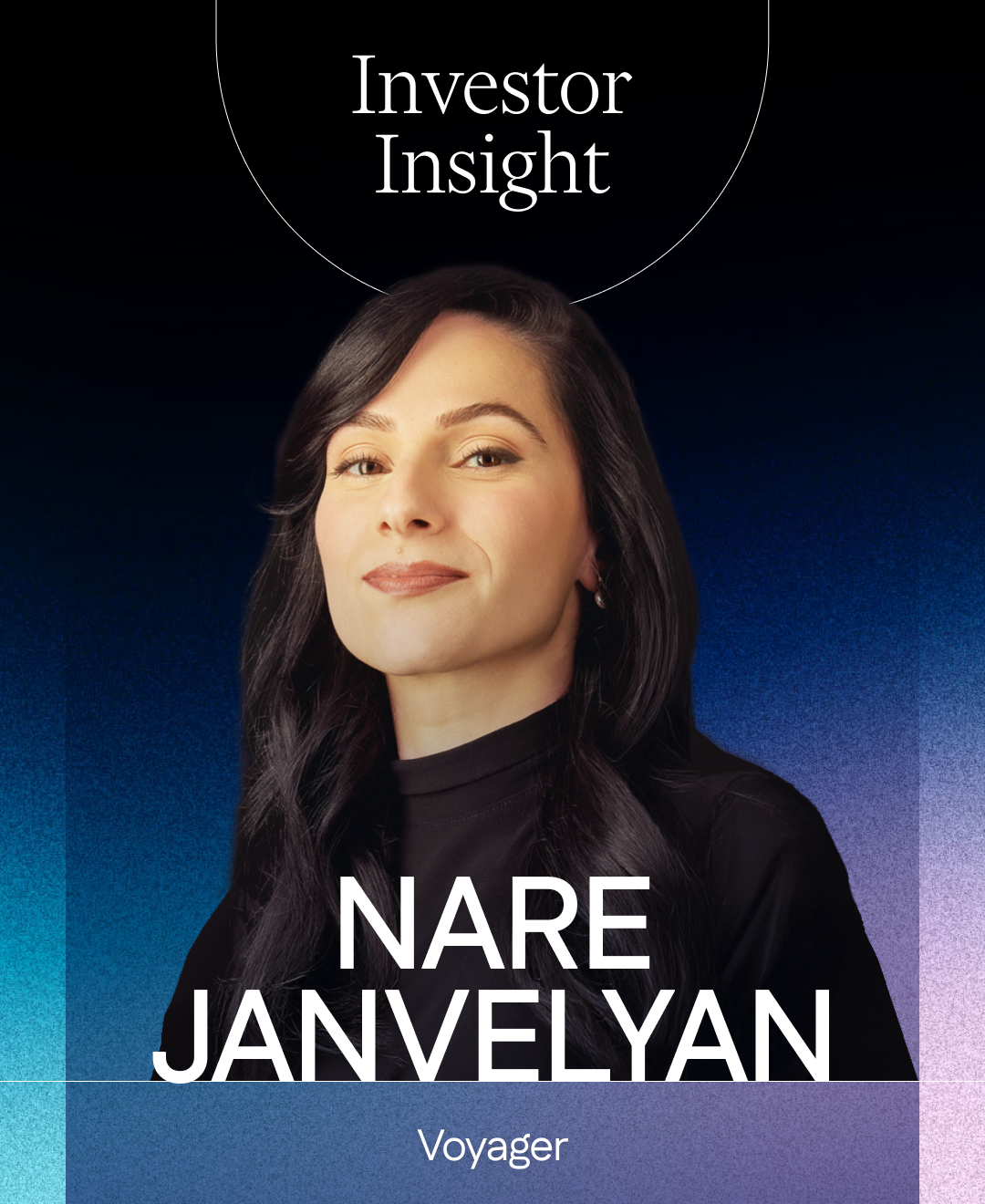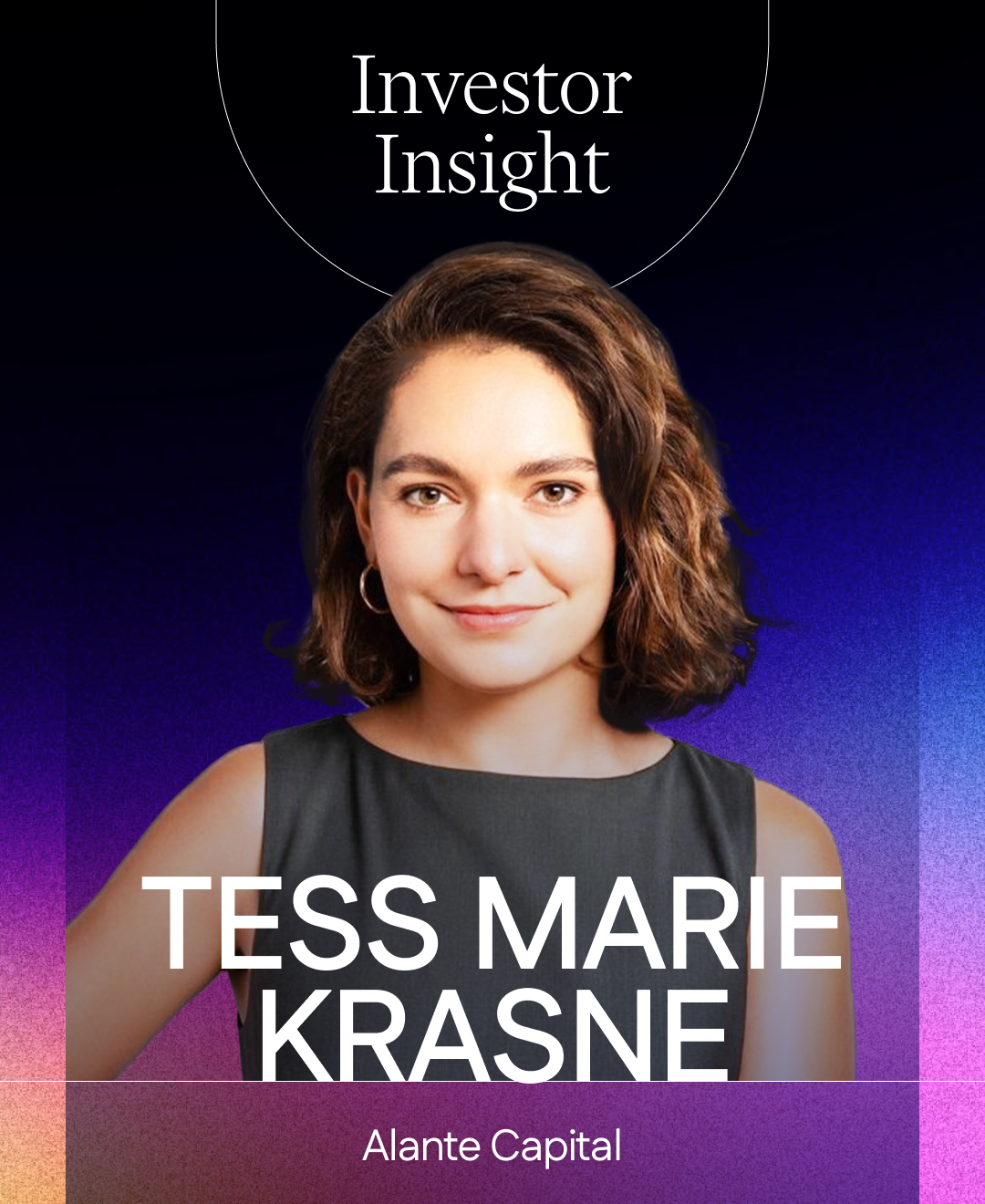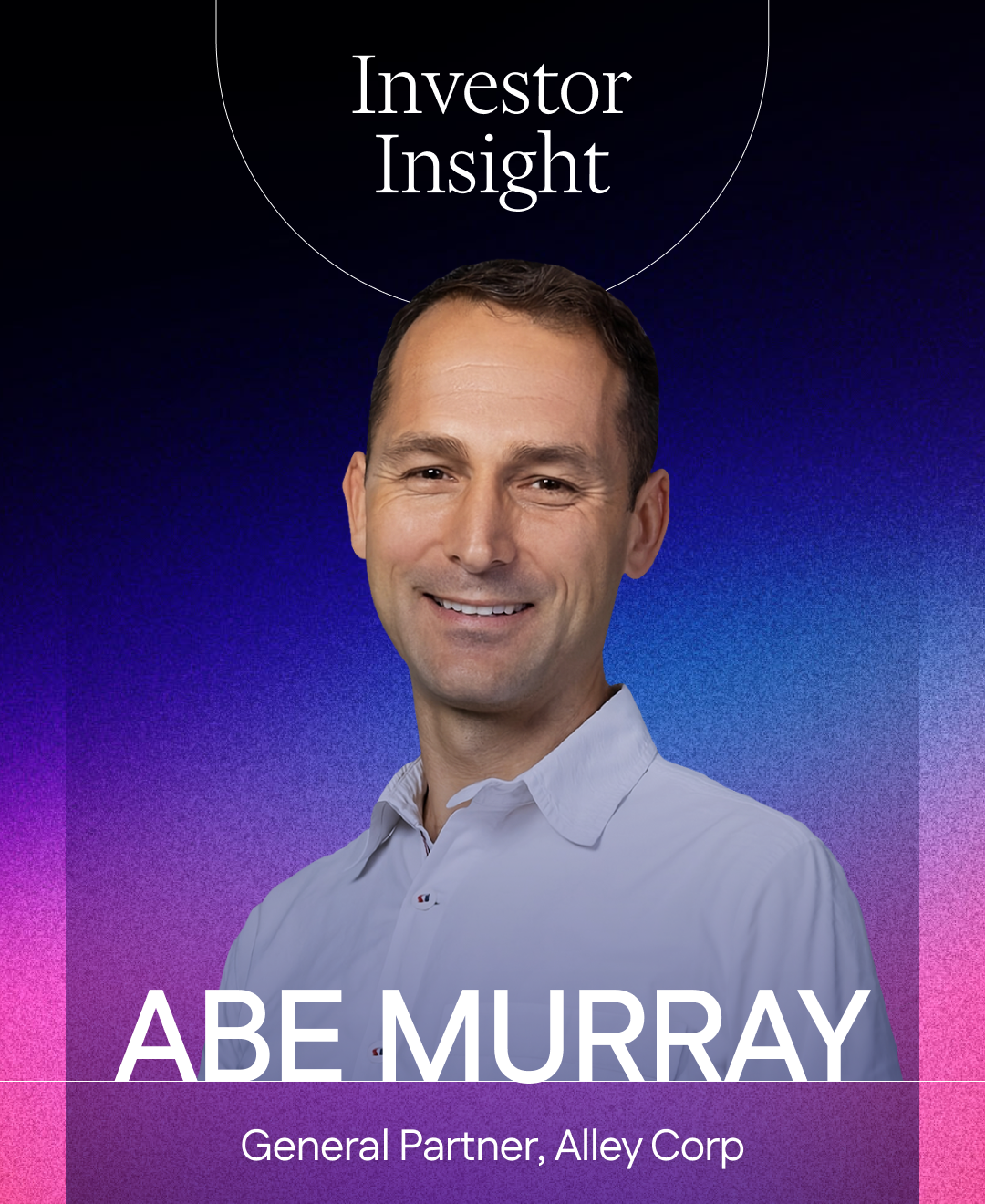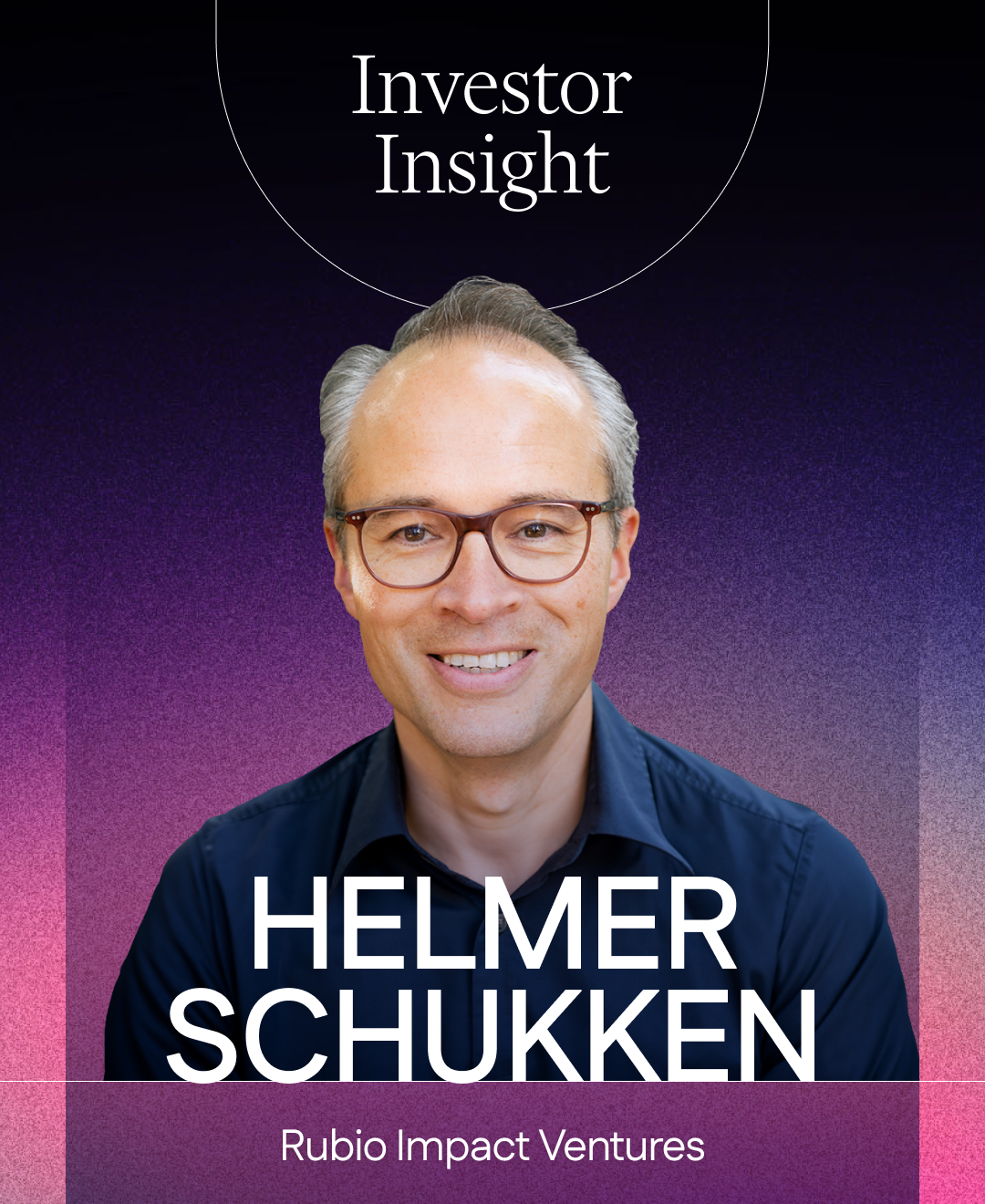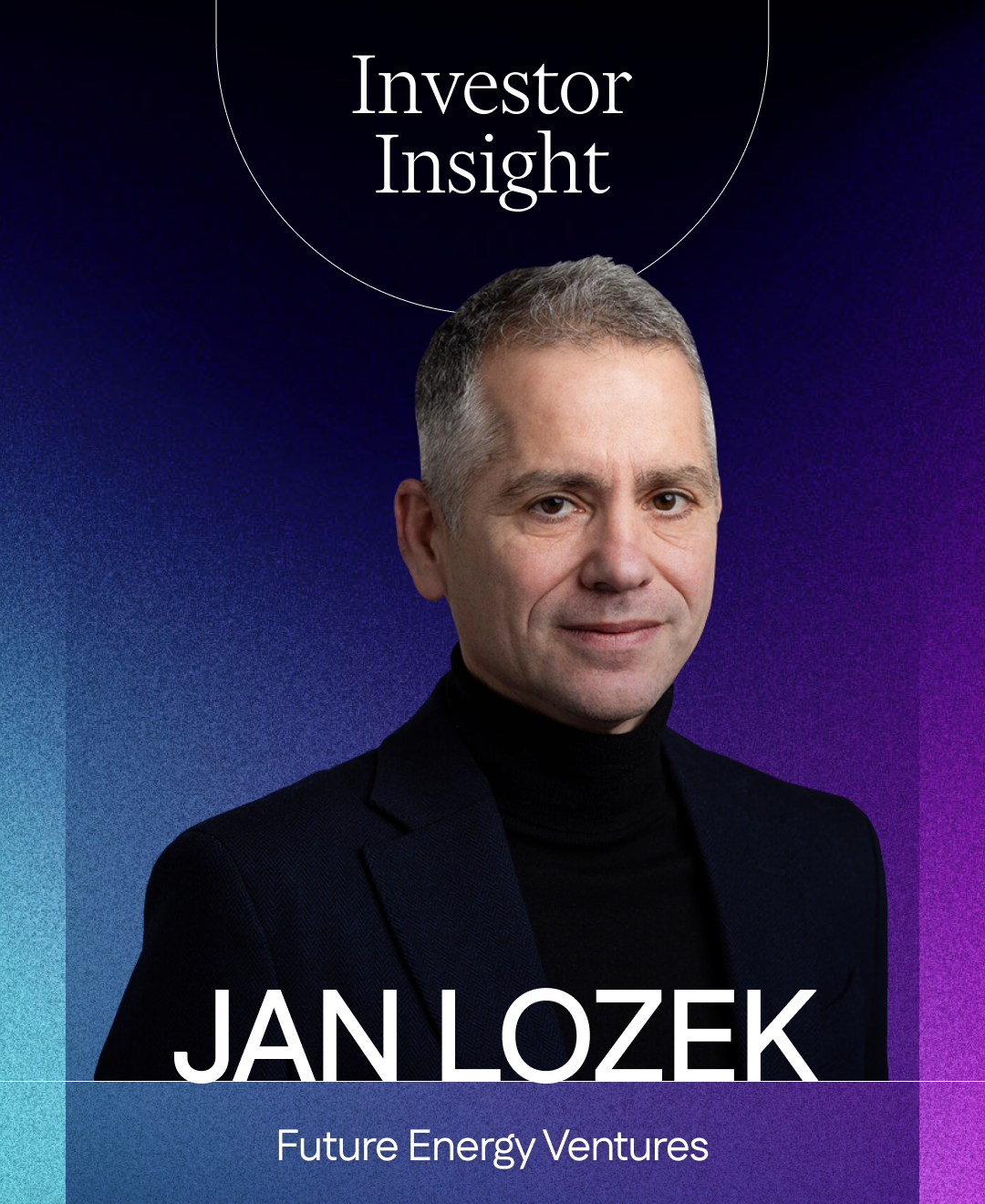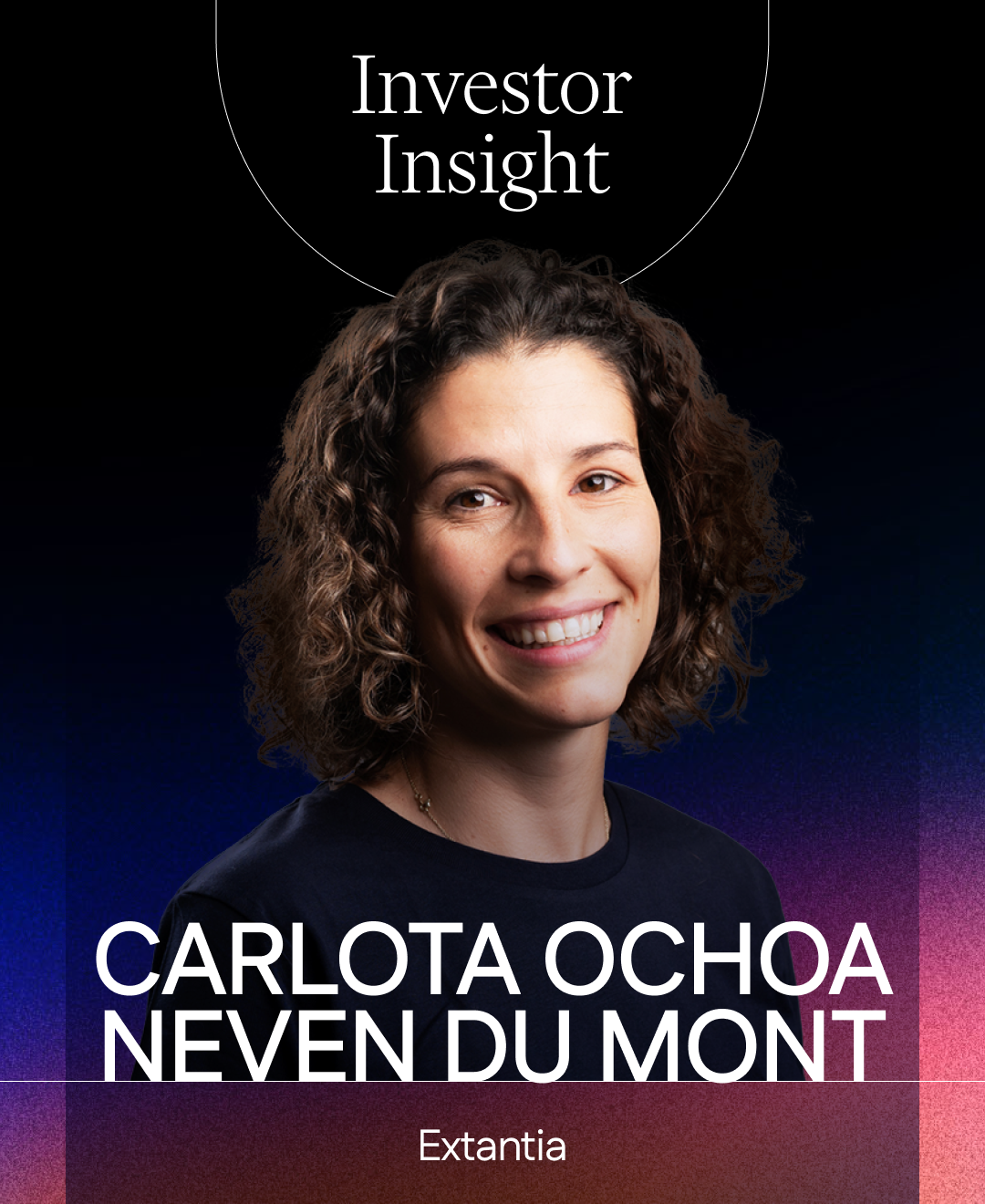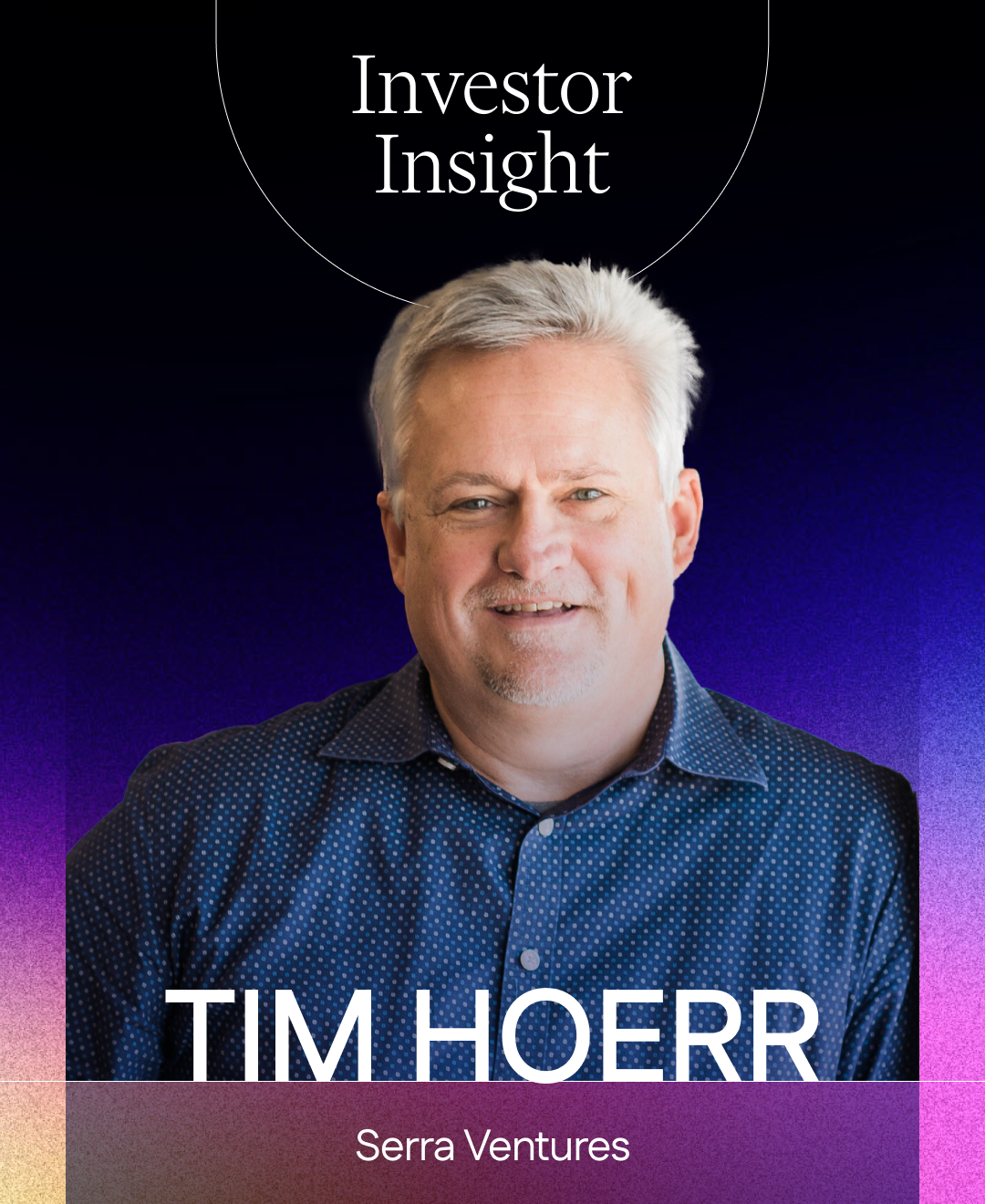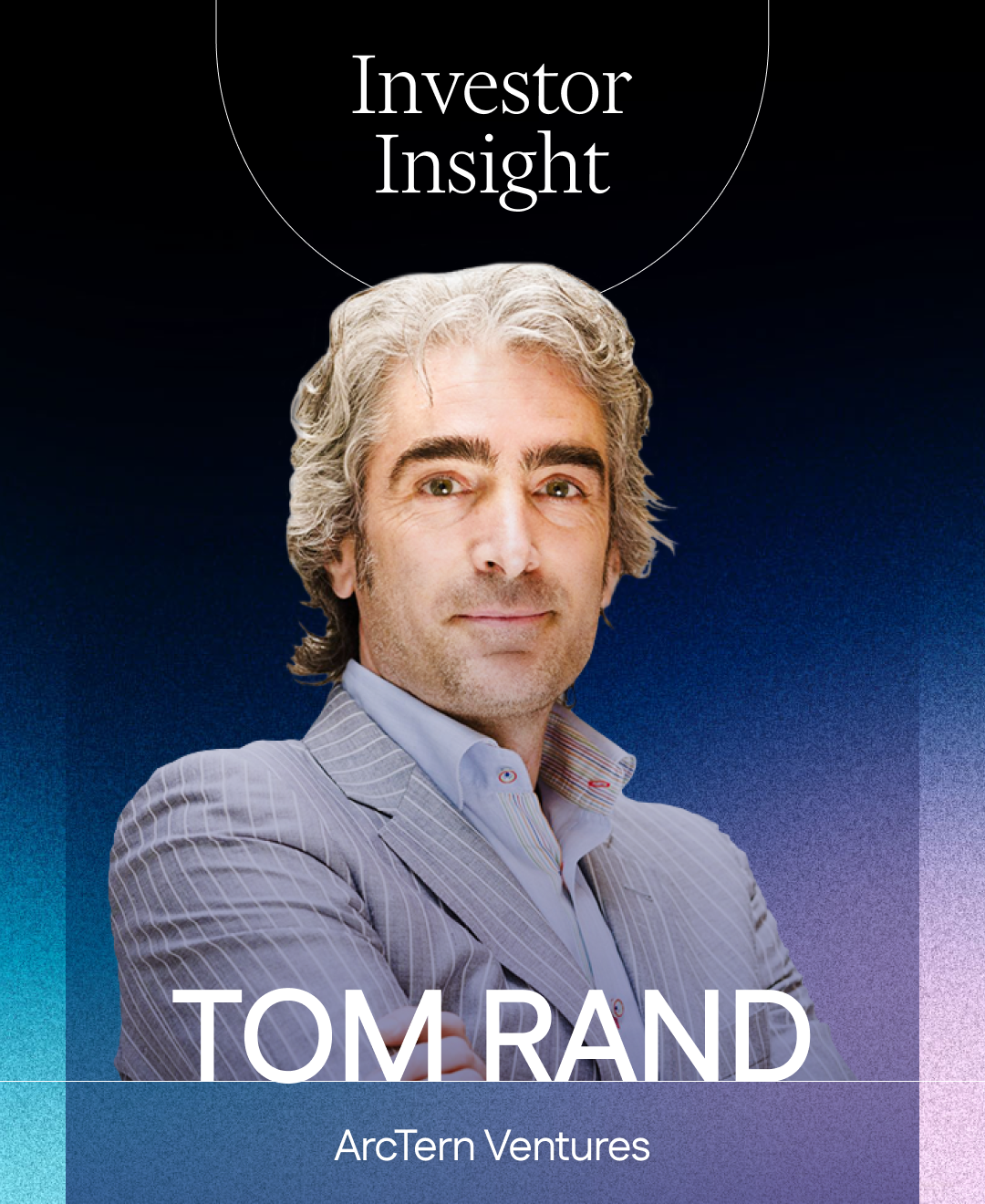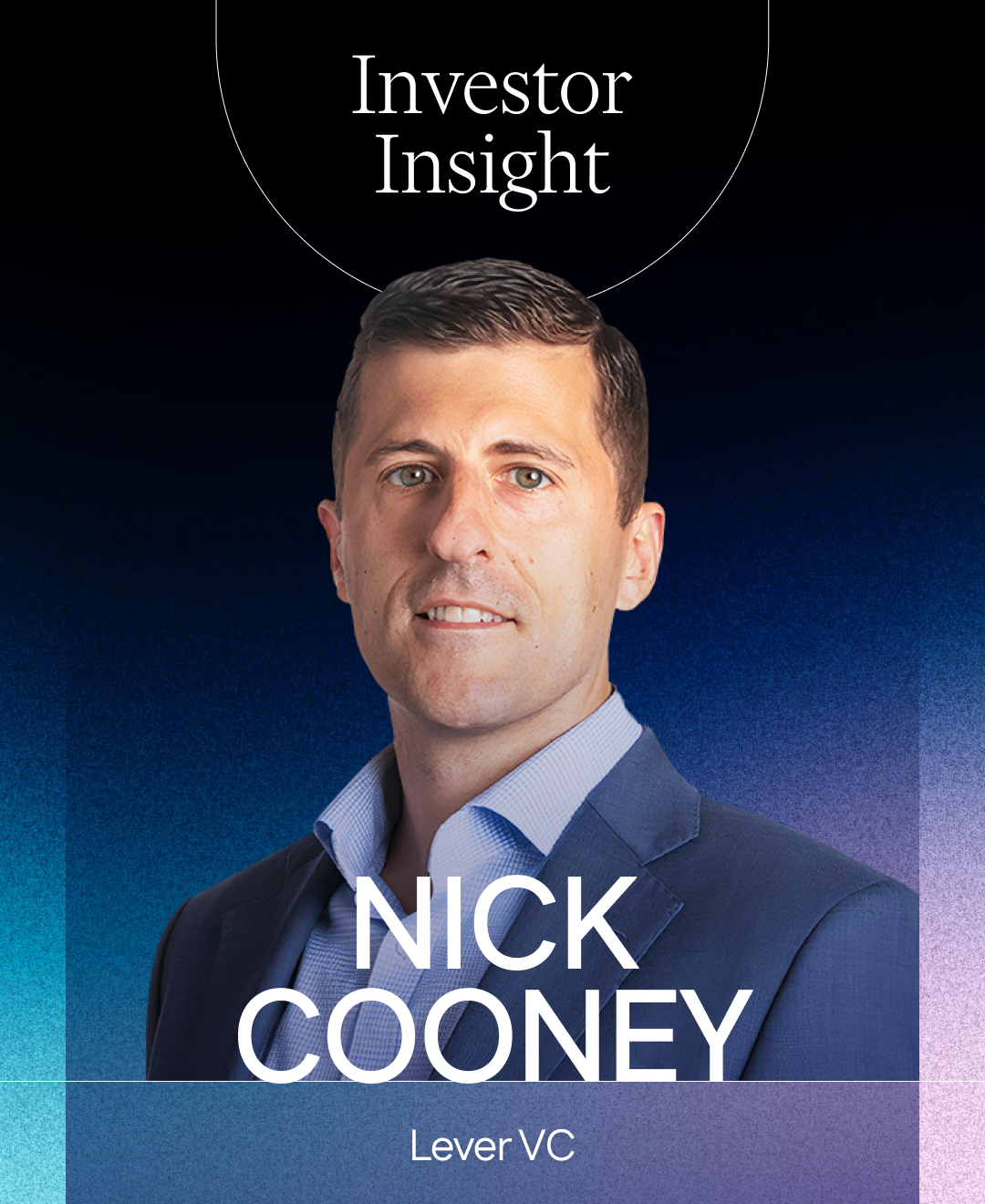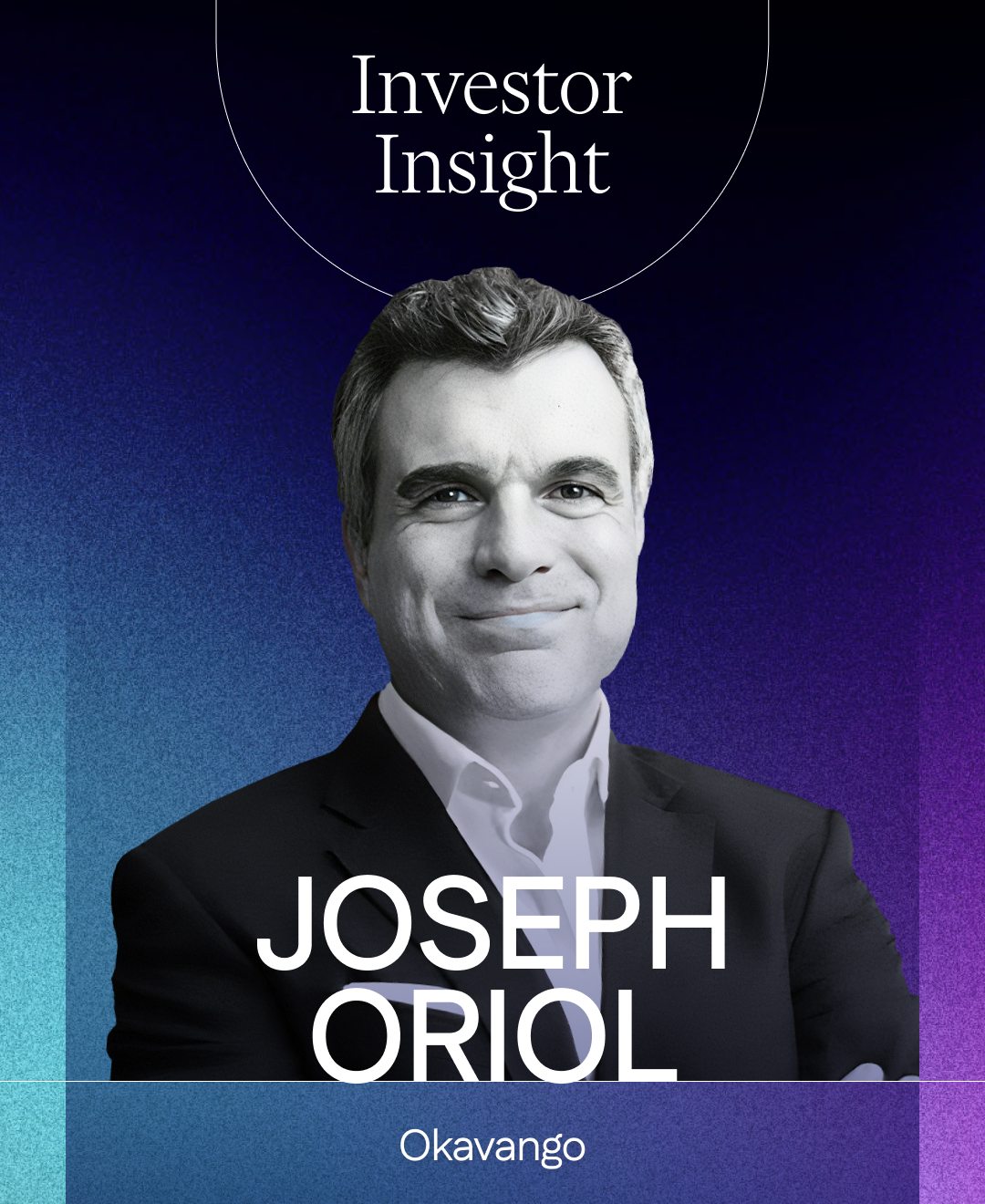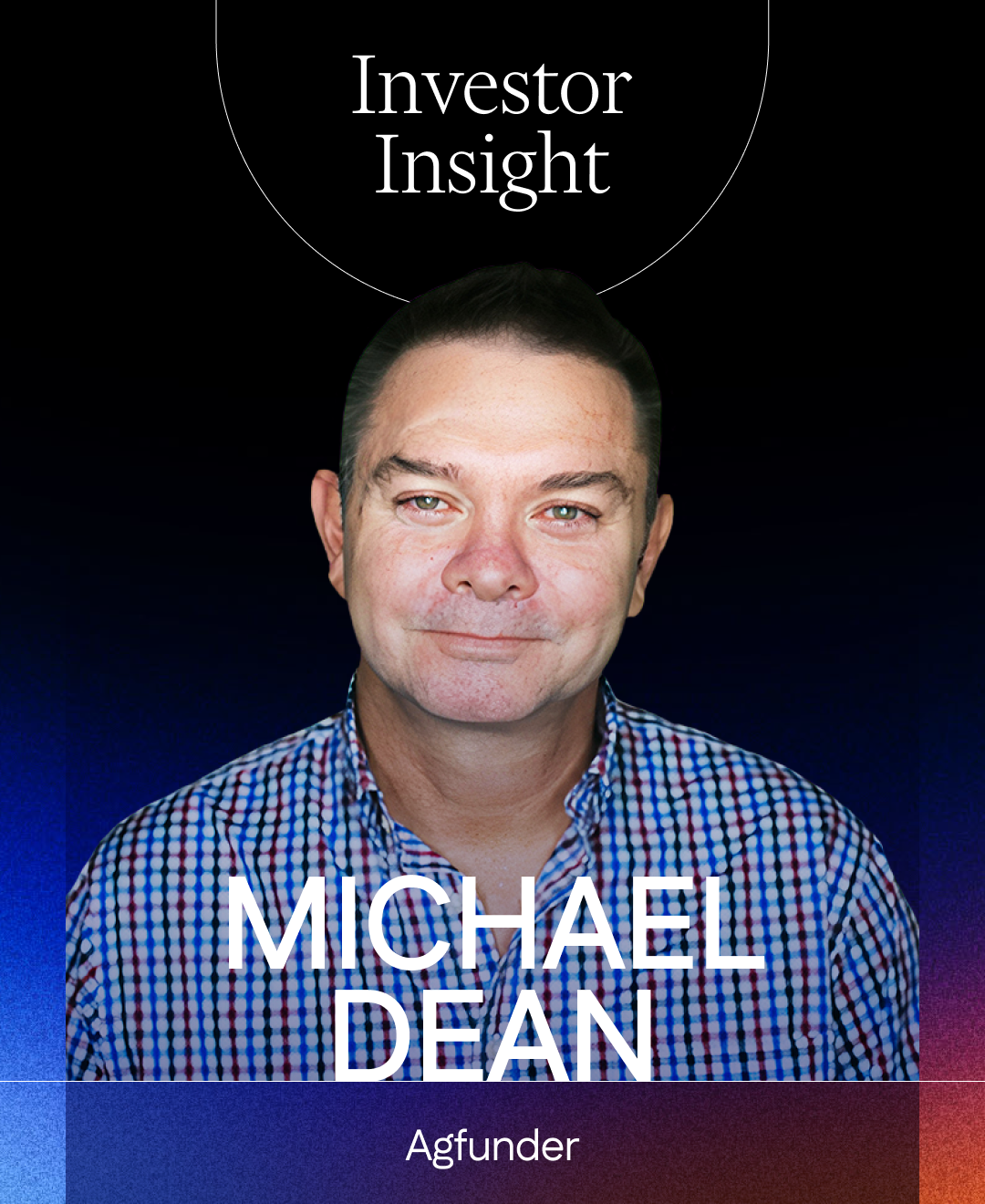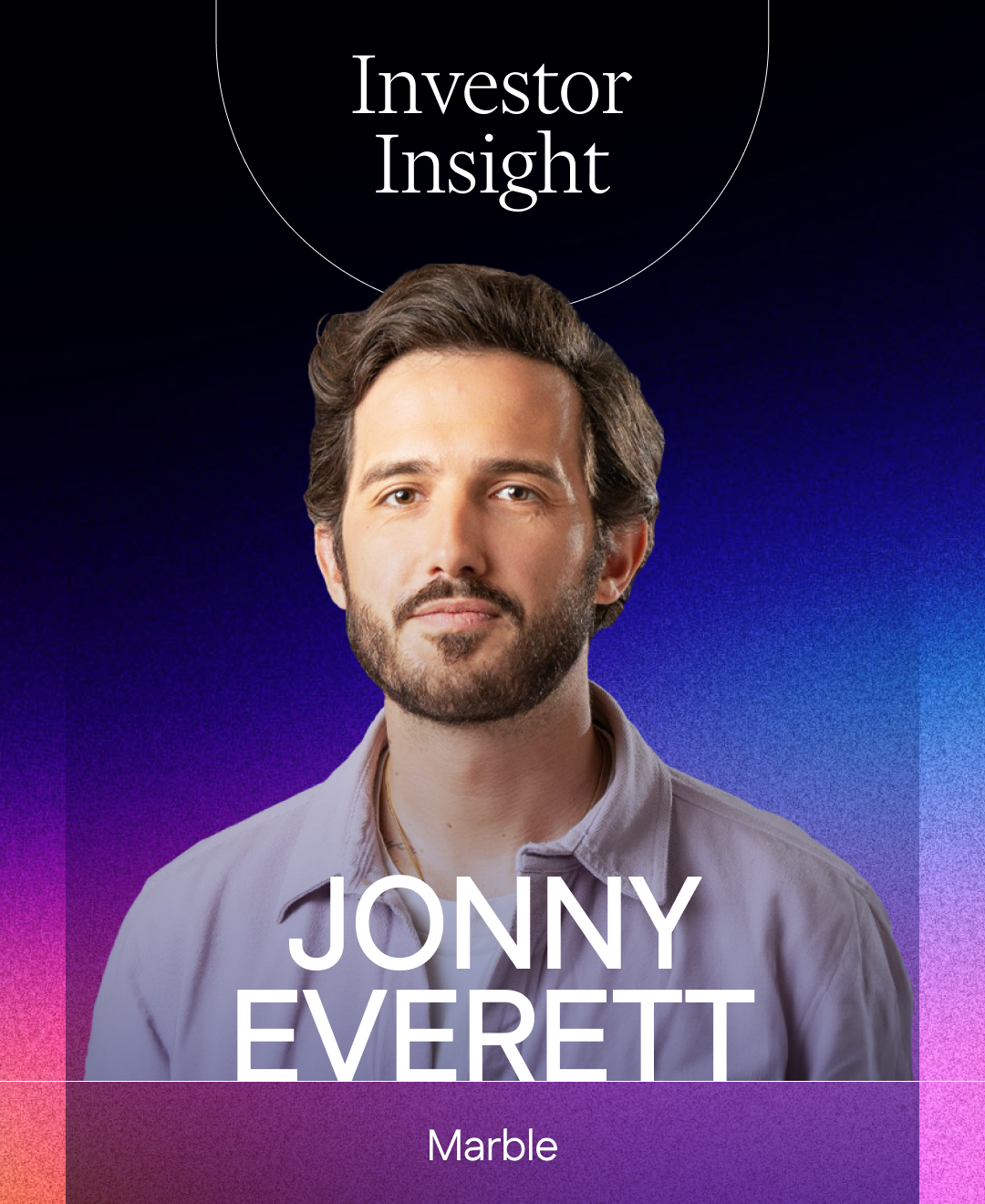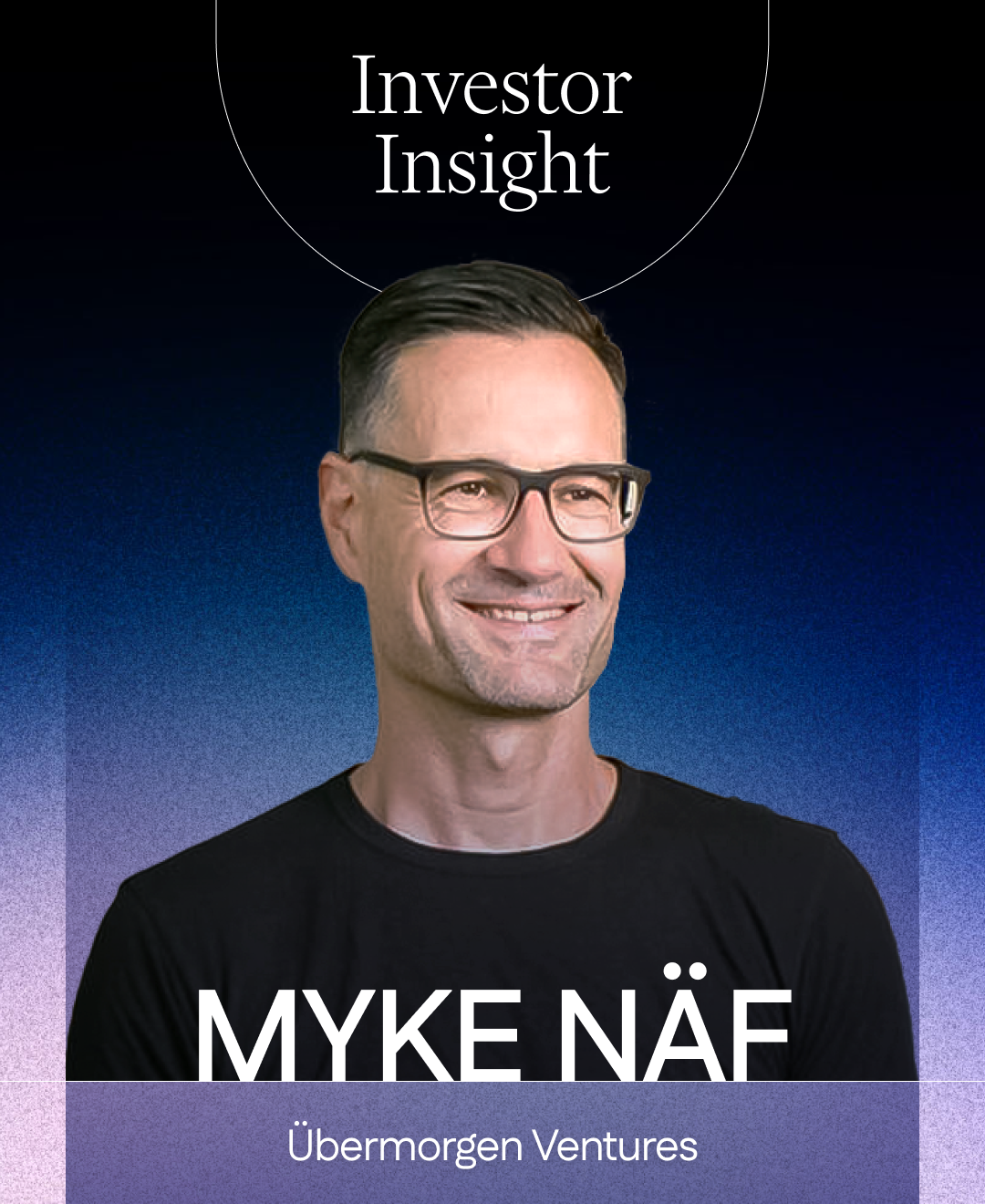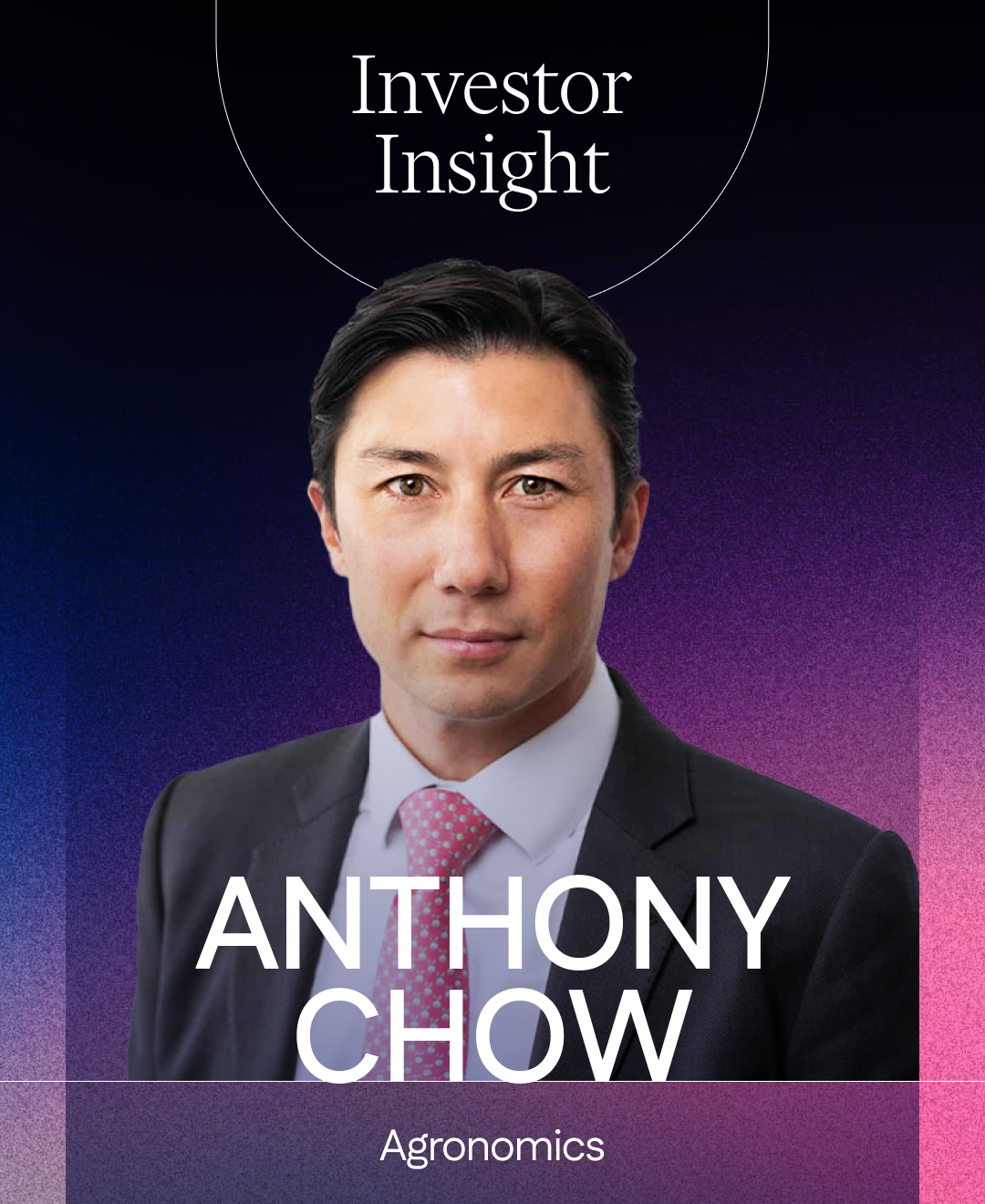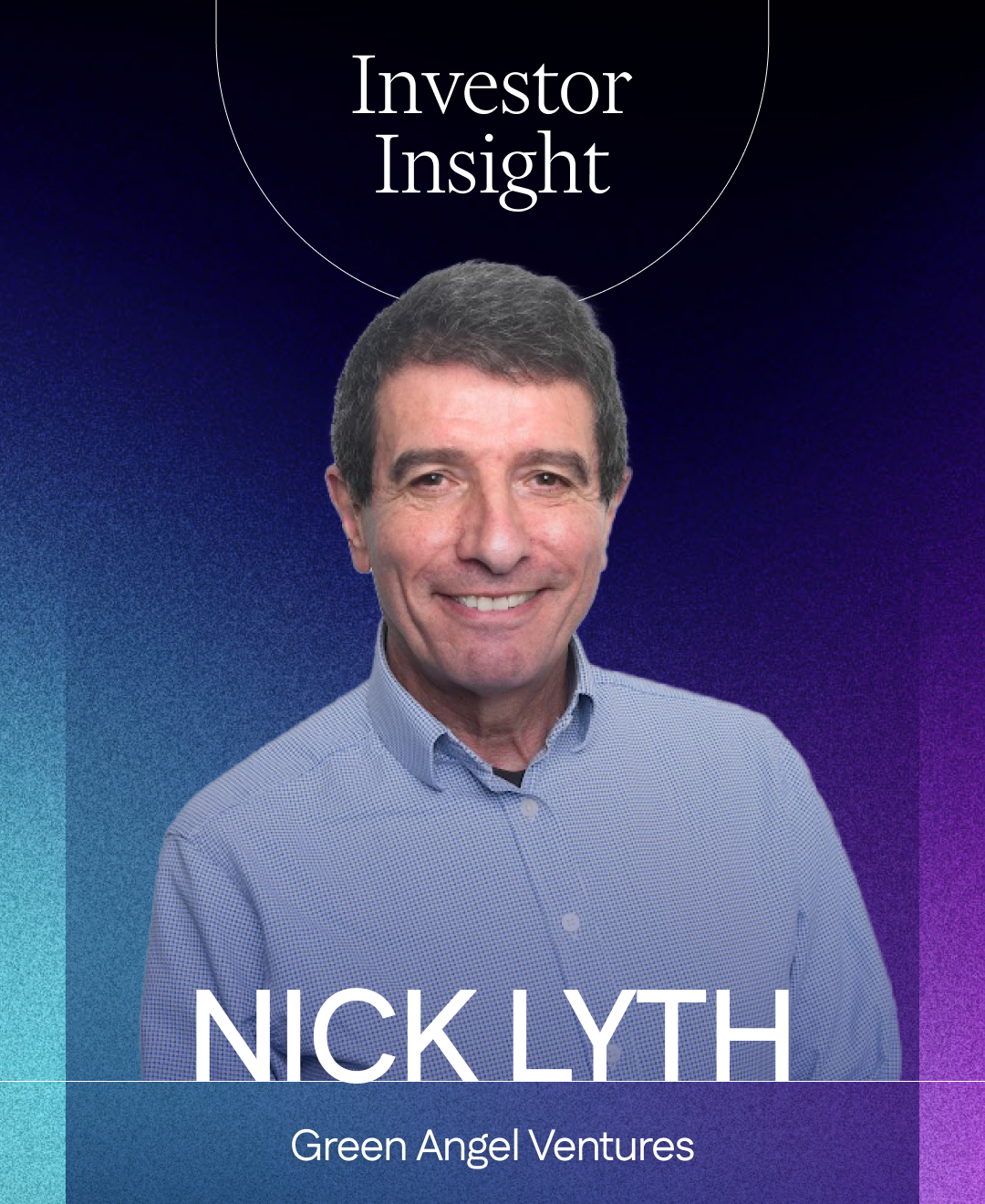Investor Spotlight Interview W/ Danny Brown, MaC Venture Capital

Thank you so much for being here, Danny. Do you think you could give us a brief introduction to yourself, your company, and your investment focus?
My name is Danny Brown, and I'm one of the partners here at MaC Venture Capital. We are an LA-based seed fund focused on investing across almost every category with a focus on tech and tech-enabled products that pay attention to changes in societal trends, and behaviour, whether that be consumer behaviour, market behaviour, cultural shifts, social progress trends, things like that. The real thought is to essentially leverage where the puck is going in order to build a next-generation category leader in any respective industry. With that, we've invested in all kinds of companies, the future of healthcare, media, satellites. We've even got a baby food company.
We really look to be as involved as companies want or need us to be. We're all a team of ex-operators with experience starting, scaling companies, as well as being career VCs, consultants, et cetera. So we leverage our network that ranges from the political sphere to media and entertainment and broader technology to help with everything from go-to-market strategy and product market fit journey. Our focus is really just backing the next future leader of any product and being helpful where we can.
Climate is an emerging trend we focus on, looking at future industries, consumer demand, and shopping habits. There's emphasis on "greener options" and improving processes in material sciences, logistics, and green products.

Could you please share your investment focus areas for the current year and the rationale behind them?
When it comes to the deals I work on, I focus on a few different sectors. This year, we've done a couple of media plays, as well as healthcare and a few others. I'm traditionally involved in the healthcare, fintech, logistics, and media spaces, as well as marketplaces.
There have been a few economic changes around the world lately. In light of them, how have your investment criteria evolved?
As a firm, we understand that the economy moves in cycles, each presenting unique challenges. But it's a cycle— it's going to do what it's going to do.
We focus on companies practising fundamentals. These are companies with a clear understanding of their goals and operations, maintaining a key focus on lean and sensible practices. We look for businesses building sustainably, not just environmentally, but in their practices.
We ensure that every dollar spent furthers the company's future. Our approach emphasises companies that can navigate economic cycles through solid fundamentals and efficient operations.
What are the key qualities you look for in a startup or founders?
When it comes to companies, generally speaking, we're looking for the journey to a venture-scale return. People often ask what someone’s route to $100 million in revenue looks like. While we're not expecting any seed-stage company to have direct sight of that, we focus on the journey to scaling. We want founders who think about the steps involved, with a true North vision.
We seek founders who balance visionary ideas with practicality— understanding their strengths, acknowledging gaps, and being open to finding solutions through hiring, advisors, or strategic partners. This collaborative approach helps build the support network the company will need as it grows.
As a firm, we typically lead seed rounds, preferring companies post-product with some market feedback. However, as generalists, we remain open to various opportunities.
Well, that's very positive. Yes, post-product is a bit safer, isn't it?
Yeah. Don’t get me wrong, we have our fair share of pre-product, pre-revenue companies, but when it comes to helping them plan how to expand, scale a company, and going all in towards developing the business to the next level, having the product already put together is helpful.

What founder traits would lead you to say yes immediately?
The "yes quality" we look for is an emotionally intelligent, self-aware founder with unique domain experience or deep industry understanding. They can delve into the complexities of their idea but express it simply.
These founders can demonstrate their understanding by making it digestible for others. In early-stage companies, founders often need to be salespeople too. So they must not only know what they're doing but also make others understand why they're doing it.
Could you describe your due diligence process before making an investment?
Our process is straightforward but thorough. We aim for quick decisions, valuing founders' time. It starts with initial conversations, followed by data room analysis and digging into financials. At early stages, we focus on understanding business model drivers, market, pipeline, and sales cycle.
Figuring out how a company needs assistance is very important. We're not just making bets; we're helping hedge those bets by supporting companies strategically. We move as quickly as possible, typically taking 4-6 weeks, but we aim for verbal indications that we're in a deal sooner rather than later so founders know we're serious.
How do you evaluate the potential of a company in its early stages?
We start with the problem they're solving and the market. We analyse the global opportunity, then narrow down to their total addressable market and SAM— the smallest market they can operate in while still generating a huge return.
We layer in competitive landscape analysis, understanding direct and indirect competitors. We consider who the founders are wary of and who inspires them. We also think about future moats. Since copycats emerge when something works, we consider how to move from being a first mover to building a solid moat, and if that's reasonable for the industry.
How do you balance the need for quick decisions and competitive deals with a thorough evaluation?
Experience helps here. We each have our style, but also a regular approach— about 10 things we look for in the first calls to gauge interest. It's about how we communicate that to the team.
We're very collaborative. As soon as someone's excited, we discuss it in our deal calls or communicate constantly. If interested, we dig deeper together. Being a small firm allows us to move quickly without compromising. We're flexible and can scale our deal team as needed.
Could you share an example of a successful investment you made and what made it stand out?
Fin has been a standout investment since I led the round last September. Rich and his team have been incredible, bringing on new corporate clients consistently. They epitomise an organised, future-thinking team that does what they say they'll do— the top quality our investors seek.
The company's been growing at an insane rate month-over-month. They have clients like Ricoh, the digital workplace solutions company, and they’ve already reached net zero emissions on London deliveries. Fin is a last-mile logistics company with its own AI system for package and driver routing, using e-cargo bikes that blend golf cart and van designs.
Fin's uniqueness lies in navigating regulation changes. As European city centres ban delivery vehicles, Fin can operate in restricted areas greenly, efficiently, and cheaper than alternatives. Their long-term potential is in their logistics and cutting-edge technology, moving the needle for major enterprise clients.

Would you characterise that as a climate investment?
Yeah, for sure. Rich, the founder, has a fun way to describe it, as "green on the top line, black on the bottom line." Sustainability is a major selling point, aligning with enterprise clients' focus on ESG tracking and regulation. It addresses a real need in logistics and shipping, which have been environmental challenges.
Fin's successful, environmentally-sound last-mile solution is a significant achievement. It exemplifies our firm's investment focus on environmental trends, which is driven by large enterprise clients, consumers, and passionate founders.
Fin is definitely a sustainability play, demonstrating how sustainability can be integrated into other industries.
We really need that. In your experience, what are the most common reasons that startups fail after receiving investment, and how can these be mitigated?
Companies can fail for many reasons, but two key issues stand out. First is the transition from fundraising. Fundraising is a full-time job that takes founders out of the business, and the transition back can be like whiplash. Founders can mitigate this by clearly understanding how each dollar will be used and setting day-one priorities. Having co-founders or hiring strong operators to support the company during this split focus is helpful.
The second issue is planning effectively. Fundraising should cover 18 months of growth and scaling. Some founders raise too little, forcing them back to the market without progress. Others raise too much, getting comfortable and potentially missing threats. The key is finding the right balance for sustainable growth.
How important is the scalability of a startup's business model in your investment decisions?
Understanding a company's potential is everything in early-stage investing. We have a follow-on strategy, but as seed-stage investors, we know we'll get diluted over time. Our initial 10-15% ownership target will decrease significantly.
We aim for a few percent of a billion-dollar company rather than 10% of a hundred million-dollar company. Understanding the company's potential and what it takes to reach scalability is our main focus. Founders raising funds need to know their goals because every investor is outcome-related.
It may seem counterintuitive to think about the company's exit at the beginning, but successful founders consider this as early as possible.
Could you share any insights on the importance of diversity and inclusion and the teams that are invested?
Backing diverse founders is beneficial for many reasons. If investors don't understand the problem, they may not see the solution's value.
Diverse founders, whether in terms of gender, race, age, or geography, often develop a scrappier, operationally-minded mentality from building with fewer resources. This is why founders of colour or female founders tend to overperform, generating about 3x returns.
Building diversity into a company's culture from the start is important. It's challenging to incorporate diversity retroactively. That said, we still evaluate all aspects of a potential investment when considering diversity. We try very hard to ensure our deal pipeline is representative, paying attention to opportunities from all backgrounds.

What role does mentorship play in your investment strategy? And how do you support your portfolio companies?
Mentorship is a huge part of our role, especially with first-time and early-stage founders. We help them understand potential challenges, industry-specific issues, and future concerns they should consider now.
Our relationship with companies varies. Some founders are laser-focused and check in a few times a year. Others, we're meeting with monthly, texting daily, and having frequent calls to figure out whatever needs to be done. We're very hands-on when needed.
How do you view competition and the startups that you invest in? Do you prefer first movers or better movers?
Ooh, that's a great question. Both have their pros, right? First movers and better movers need different approaches. For first movers creating a market, we focus on understanding their potential and identifying white space. Defensibility is key— whether through IP, partnerships, exclusivity in contracts, or talent acquisition— to build a moat against future competitors.
Better movers are equally interesting. We examine previous companies to understand why they didn't succeed or aren't performing as well. We consider why this company is a better solution and the switching costs for customers.
Neither approach is inherently superior. First movers focus on future competition, while better movers address existing competition and how they improve upon it.
What advice would you give to startups seeking investment in the current market?
In the current economic climate, fundraising is challenging. Companies need to determine their operational needs and aim to raise enough for 18-24 months of runway. A strong operating plan is essential, identifying necessary talent and KPIs for the next fundraising round.
For seed-stage companies, the focus is on proving product-market fit. Series A is typically when substantial capital is raised to fuel growth. Companies should understand their users, how to reach them, confirm interest, and adapt their product as needed.
Founders need to be flexible yet methodical, planning carefully but ready to shift strategy quickly for maximum effectiveness.

What are the emerging technologies or sectors that you believe are under-invested and why?
Our firm is very active in Africa, with about 10% of our portfolio there. It's been a great learning experience. The continent has large, young, digitally native populations eager for technical solutions. The relationships between 54 countries, their economies, and regulatory landscapes create a unique environment.
Africa has shown it's time to focus there, with opportunities for generational leaps in various industries. We're seeing potential to skip older infrastructure for newer, better versions. We've invested in several verticals and remain optimistic about the opportunities in Africa.
That’s great. How do you foresee the investment landscape evolving in the next few years?
I hope the IPO and M&A markets pick up soon. This would allow later-stage companies to have acquisition or liquidation events, keeping the cycle moving. Firms with exits can return capital to LPs, who can reinvest in new or performing funds. It also signals better exit potential for everyone.
This should make deals more attractive and stabilise pricing. The market should become friendlier, though not outright founder-friendly. Founders should be able to secure funding for strong performance more easily, while VCs can invest at reasonable prices.
Currently, the tough market makes everyone more risk-averse and everything more challenging. In the next couple of years, things should loosen up, allowing for better flow and progress in the industry.
What is one thing people believe about investing that is completely wrong?
That it's impossible to back companies trying to effect positive change and still make money, and that investing in founders from diverse backgrounds, geographies, genders, and races is a bad business move.
Companies building a more sustainable future are extremely viable investments. A greener solution doesn't necessarily mean the product will be worse or more expensive. There are venture-scalable returns in investing in better futures across industries. You don't need to stick with tried and true or stagnant approaches.

That's very positive. Thank you. If you could invest $100 million in one industry or field to combat climate change, what would it be and why?
Oh, man. Every industry is awful for the environment. Logistics and overall supply chain might be the most pressing. The post-COVID world highlighted issues with global supply chains, fuel prices, and shipping disruptions, all of which have major environmental impacts.
Moving products remains necessary, so investing in greener transportation methods across ocean, air, and ground is a big opportunity. The production of goods, packaging, and various aspects of the supply chain can all be improved for efficiency.
There are numerous elements related to the production and movement of goods or services that could be huge investment winners. This area presents a major opportunity for innovation and returns.
Which is more important for you? A great idea or a great team?
Honestly, probably the great team. A great idea is fantastic, but without the right person or people to execute it, nothing will come of it. However, being a fantastic operator doesn't guarantee building a unicorn— they do need a great idea.
Having the resources, the person, and the concepts to make that idea a reality is more important. All companies and ideas undergo iterative changes, so I'd say it's definitely the founder or the team. But the idea is a huge part of it and how they interact with it. That's why they're important.
Which sector within climate tech will become obsolete in the next decade?
I haven't really thought about climate tech dying in the next few years because, I mean, the world is ending right now. We might just get more used to discussing sustainability or enhance our standards.
Currently, supply chain, transportation, and construction need focus. As we implement regulatory changes and greener energy sources, we'll move to the next priorities. It's about building a base of needs: greener infrastructure and power, then movement of goods, followed by consumption and disposal.
It might not become obsolete, but perhaps less of a primary concern as we progress. Hopefully, as we implement change effectively, we can shift our focus to other issues.

Right. That's the golden place to be. Which is more crucial for saving the planet, technological innovation or regulatory change?
It's one of those things where one leads to the other, but I'd probably say regulatory changes will drive technological innovation. With any technological improvement, the goal is the best outcome, which is often subjective and frequently means whatever creates the most money.
New innovations, like AI, might not initially focus on environmental impact. But regulation will hopefully restrict energy consumption or, like with delivery restrictions, force logistics networks to adapt, creating opportunities for new technology.
I'll say regulation because those building technology aren't necessarily focused on minimising environmental impact. Regulations can guide tech development in more sustainable directions.
What role should major corporations play in the fight against climate change?
I don't understand why all companies aren't leading the charge. Consumer data has shown for years that people are conscious consumers, often willing to pay a premium for better solutions. There's a huge opportunity in investing in greener, cleaner methods.
Even big oil companies should invest in green energy's future. Yes, it might cannibalise current business, but it's clearly where things are heading. Be your own first mover, your own competitor. Take over that new industry and build for it.
We see this in some cases, like corporate VC arms investing in their supply chain. They're best positioned to effect change. Many might not act without regulatory pressure or obvious financial incentives, but they should be leading the charge.
That sounds right to me, too. Danny, thank you so much for spending some of your time with us. Your perspective was excellent, and your interest in infrastructure improvements in the fight against climate change has been fascinating. From all of us at Brighter Future, we wish you and MaC nothing but the best success for your investments in the future.
To learn more about MaC Venture Capital, please see https://macventurecapital.com/.
Let’s Start Building Your Story
Book a call or email us at mission@brighterfuture.studio to begin crafting your inside-out narrative.


